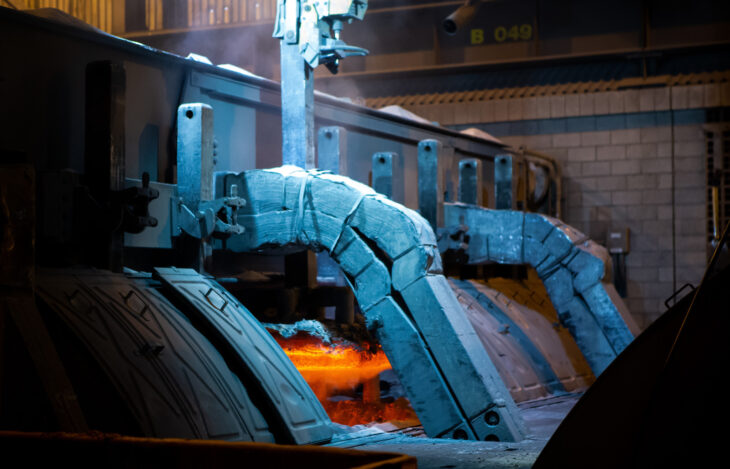Alcoa Corporation plans to restart curtailed capacity at its smelters in Australia and Brazil. In addition to restarting capacity, the company is working to improve the sustainability of the sites by increasing the use of renewable energy.
Portland, Australia
Alcoa plans to restart 35,000 tonnes of capacity per year, which had been idled in 2009, at its Portland Aluminium joint venture smelter in the State of Victoria in Australia.
Portland Aluminium is an unincorporated joint venture between Alcoa of Australia Limited (55%), CITIC Nominees Pty Ltd (22.5%), and Marubeni Aluminium Australia Pty Ltd (22.5%). The smelter has a total of 358,000 tpy of total capacity, of which Alcoa Corporation has 197,000 tpy of consolidated capacity. The smelter currently has a workforce of about 680, consisting of both direct employees and contractors. Current production is approximately 85% of the smelter’s total nameplate capacity.
The restart’s total cost is anticipated to be approximately $28 million of which Alcoa’s share is approximately $9 million. Once the restart is complete, Portland will operate at approximately 95% of total capacity. The project is expected to create approximately 30 permanent roles at the smelter and about 50 temporary construction positions.
“Restarting the idle capacity improves the smelter’s cost structure, competitiveness and longer term sustainability,” said Michael Gollschewski, Alcoa’s vice president of Operations and president of Alcoa Australia. “Portland Aluminium has long enjoyed the support of the local community and with this project we are pleased to be able to create further positive social impact through additional employment and local expenditure.”
Energy to operate the restored capacity will be supplied under new power agreements, including a new four-year agreement with power generator AGL in Victoria. This is in addition to several five-year energy agreements with AGL, Alinta Energy, and Origin, which started in August 2021.
In addition, the Australian Federal Government has committed, subject to approval, to provide up to A$19.2 million (US$14.8 million) per year for four years to underwrite the smelter’s participation in the Reliability and Emergency Reserve Trader (RERT) scheme. The arrangement will recognize the smelter’s ability to rapidly shed load when required to help protect the power grid from unexpected interruptions when the grid is under duress.
As a stable baseload energy consumer, the smelter will continue to provide important market stability, as more renewable power sources enter the system. Currently, more than 30% of the smelter’s consumed electricity is derived from renewable sources, including electricity from a nearby wind farm. This figure is expected to grow with implementation of the Victorian Renewable Energy Target, which aims to reach 50% renewables by 2030.
The process to restart the additional capacity at Portland Aluminium will begin immediately, with metal production expected to start in the third quarter of 2022.
Alumar, Brazil
Alcoa plans to restart 268,000 tonnes per year of aluminum capacity at the Alumar smelter in São Luís, Brazil, which has been fully curtailed since 2015.
“Our restart decision is based on an analysis that shows the smelter can be competitive throughout all cycles, leveraging the co-located refinery, a strong workforce, and competitive, renewable power arrangements,” said John Slaven, executive vice president and chief operating officer. “With this planned restart, we’ll be able to build upon the strong capabilities at this site and capture benefits for our investors, customers, employees, and the stakeholders in the state of Maranhão in Brazil.”
The Alumar smelter is jointly owned by Alcoa Alumínio (60%) and South32 (40%). The facility has three potlines with a total operating capacity of 447,000 tonnes, which includes Alcoa’s share of 268,000 tonnes.
The process to restart the idle capacity at the smelter will begin immediately and will cost approximately $75 million, including around $10 million in capital expenses. The smelter restart will involve the hiring of more than 750 employees and will add to the 850 direct employees at the site’s co-located alumina refinery.
The company is expanding the use of renewable energy at the site, and by 2024, the smelter will be powered with 100% renewable energy.
Otavio Carvalheira, vice president of Operations and Alcoa’s President in Brazil, said, “We are excited about the work ahead to safely and effectively restart the Alumar smelter, and we appreciate the collaboration from our government and community stakeholders as we begin this important, months-long process to build upon Alcoa’s leadership and further improve our global competitiveness.”
The first molten metal at Alumar is expected in the second quarter of 2022.

